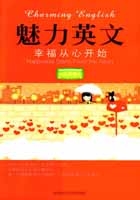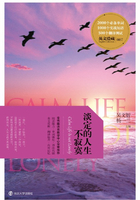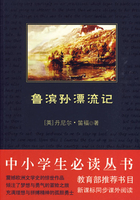It seemed to me, as I kept remembering all this, that those times and those summers had been infinitely precious and worth saving. There had been jollity and peace and goodness. The arriving (at the beginning of August) had been so big a business in itself, at the railway station the farm wagon drawn up, the first smell of the pine-laden air, the first glimpse of the smiling farmer, and the great importance of the trunks and your father’s enormous authority in such matters, and the feel of the wagon under you for the long ten-mile haul, and at the top of the last long hill catching the first view of the lake after eleven months of not seeing this cherished body of water. The shouts and cries of the other campers when they saw you, and the trunks to be unpacked, to give up their rich burden. (Arriving was less exciting nowadays, when you sneaked up in your car and parked it under a tree near the camp and took out the bags and in five minutes it was all over, no fuss, no loud wonderful fuss about trunks.)
Peace and goodness and jollity. The only thing that was wrong now, really, was the sound of the place, an unfamiliar nervous sound of the outboard motors. This was the note that jarred, the one thing that would sometimes break the illusion and set the years moving. In those other summer times all motors were inboard; and when they were at a little distance, the noise they made was a sedative, an ingredient of summer sleep. They were one-cylinder and two-cylinder engines, and some were make-and-break and some were jump-spark, but they all made a sleepy sound across the lake. The one-cylinder throbbed and fluttered, and the twin-cylinder ones purred and purred, and that was a quiet sound too. But now the campers all had outboards. In the daytime, in the hot mornings, these motors made a petulant, irritable sound; at night, in the still evening when the afterglow lit the water, they whined about one’ s ears like mosquitoes. My boy loved our rented outboard, and his great desire was to achieve single handed mastery over it, and authority, and he soon learned the trick of choking it a little (but not too much), and the adjustment of the needle valve. Watching him I would remember the things you could do with the old one-cylinder engine with the heavy flywheel, how you could have it eating out of your hand if you got really close to it spiritually. Motor boats in those days didn’ t have clutches, and you would make a landing by shutting off the motor at the proper time and coasting in with a dead rudder. But there was a way of reversing them, if you learned the trick, by cutting the switch and putting it on again exactly on the final dying revolution of the flywheel, so that it would kick back against compression and begin reversing. Approaching a dock in a strong following breeze, it was difficult to slow up sufficiently by the ordinary coasting method, and if a boy felt he had complete mastery over his motor, he was tempted to keep it running beyond its time and then reverse it a few feet from the dock. It took a cool nerve. Because if you threw the switch a twentieth of a second too soon you would catch the flywheel when it still had speed enough to go up past center, and the boat would leap ahead, charging bull-fashion at the dock.
徒步旅行
Walking Tours
罗伯特·路易斯·史蒂文森 / Robert Louis Stevenson
我们一定不要像有些人那样,认为徒步旅行只是观赏乡村风景的一种更好或更坏的方式。其实观赏山水风景有很多选择,而且都很不错,但没有哪种比得上坐火车观赏生动有趣,尽管一些附庸风雅之人并不赞同。但是,徒步观光的确不是一个十分可行的方法。一个真正有兄弟情怀的人乘船出行时,并不奢求沿途特殊的景观,而是怀着某种愉快之情——从早晨充满希望、精神抖擞地出航,到夜晚平安、满足地归航。他说不清是挎上还是卸下背包更快乐。起程时的兴奋让他一心想着终点。不管他做什么,得到的都不仅仅是事物本身,一定也会在未来得到更丰厚的赏赐。因此,快乐带来快乐,源源不断。关于这一点,只有少数人能够明白,大多数人不是长期待在一个地方不动,就是顷刻数里。他们不会将两者折衷,而是终日劳碌奔忙。而且,最重要的是赶路之人不能领悟旅游的乐趣。这种人,自己对着酒罐痛饮时,见到别人用小杯子喝就会心生反感。他不会相信,啜酒才能品出酒的醇香;也不会相信,拼命赶路只会让自己变得麻木、冷酷无情;晚上回到客栈感觉筋疲力尽、头脑昏沉。他不像悠闲的漫步者那样觉得夜晚温和迷人。上床大睡与双份睡前饮料是他仅有的生理需要。如果他是个吸烟的人,甚至连烟斗也会变得索然无味,没有了诱惑力。在追求快乐的过程中,这种人注定要事倍功半,并且最终与快乐无缘。总之,他如同谚语中所说的那种人——走得越远越糟糕。
那么,要好好地享受旅行,徒步旅行者需要力求独自前往。如果你成群结队或结伴而行,那就不再是徒步旅行,只是徒有其表罢了,更像是大自然中的一次野炊。徒步旅行应单独前往,因为它的本质是自由,这样你就能随时停下或继续前进,按着自己的心情选择这条路或那条路;你必须有自己的步调,既不需要跟紧步履匆匆之人,也无须在女孩身上浪费时间。然后,你一定要敞开胸怀,让所见之物为你的思想添彩。你应该像一支任一种风都能吹响的笛子。哈兹里特曾说:“我不能体会行走与谈论同步的乐趣。当我身在乡村时,我向往简单纯粹的生活,就像村民们一样。”这正是独自旅行的内涵。在你的身边,不该有嘈杂之声打破清晨沉思的寂静。一个没有停止思考的人,是不会全身心地沉醉于来自户外的美好景致之中的。这种沉醉起始于思维的眩晕和停滞,最终进入一种超凡的平和境界。
任何形式的出游,第一天总会有些苦涩的瞬间。旅者对他的背包态度冷淡,几乎想要把它抛到篱笆之外时,会像基督徒在类似情形下的做法一样——“跳三跳,继续歌唱。”并且,很快你就能获得出游的舒适心境。它会变得有吸引力,出游的精神也会投入其中。于是,背包一背上肩,你残留的睡意就会顷刻全无,你立刻抖擞精神,大踏步地开始新的旅行。无疑,在所有的心绪中,选择道路时的那种心情是最好的。当然,如果他要继续考虑那些烦心事,如果他向阿布达的箱子敞开胸怀,与女巫同行的话,那么无论他身在哪里,无论疾走还是漫步,他都不会快乐。而且,这会给自己的人生带来多少遗憾啊!如果现在有30个人同时出发的话,我敢跟你打赌,在这30个人中,你不会找到一个脸色忧郁之人。这是一件很值得去做的事情。试想,一个夏日的清晨,这些旅者带着夜色,一个接一个地上路了。他们当中有一个步调很快的人,他的目光中带着渴望,全神贯注于自己的思绪中,原来他正在自发机杼,字斟句酌,将山水秀景再现于文字。还有一个人,边走边凝视着草间;他在小河边停下,去看看那里飞舞的蜻蜓;他倾斜着身子依靠在茅屋门前,看不够那悠闲自得的黄羊群。另外有一个人,他说着、笑着,对自己比比画画地一路走来。随着眼中闪现的怒火和额上的阴云,他的脸色在不时地变化着。原来,他正在路边构思文稿,表达演说,进行着最激烈的会谈。再过一会儿,他极可能会引吭高歌。对他而言,假如在这方面不是很擅长,刚好又在拐角处碰上一个并不木讷的农民,我想不出还有什么比这更糟糕的情形,我实在不知道这位行吟诗人和那位农民谁更难受。久居室内的人通常不习惯去那些陌生的地方,也不能理解这些游客的乐趣所在。我认识一个人,他曾被指控为疯汉,因为尽管他已是一个长着红胡子的成年人,但是走起路来像孩子一样蹦蹦跳跳。如果我告诉你,很多学识渊博的学者都向我坦白:他们徒步出游的时候都会唱歌,而且唱得很难听。当他们遇到上面的情况——与一个不幸的农民相遇时,都会羞愧难当,你一定会很吃惊的。















